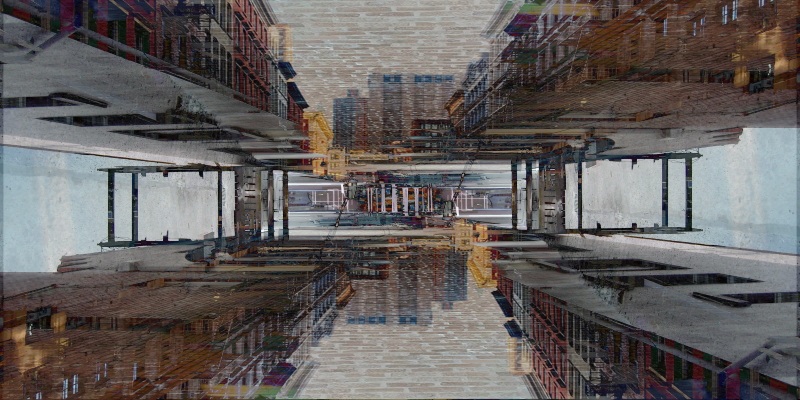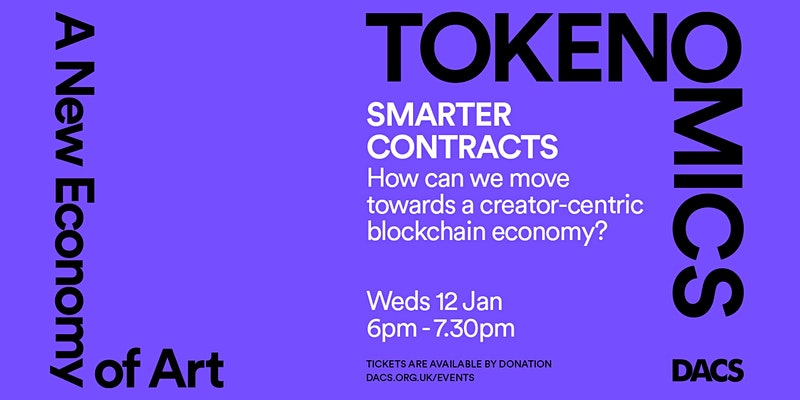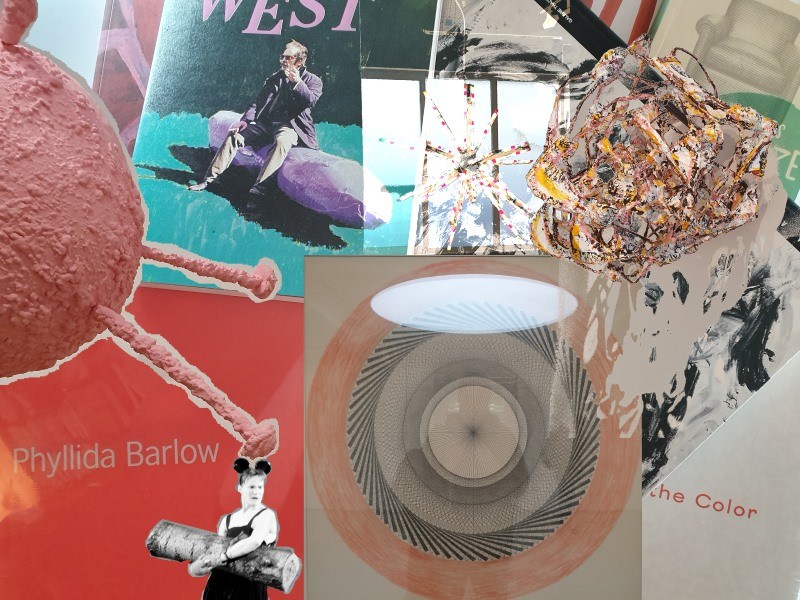The Royal College of Art and Lumen Art Projects have joined hands to present an online hour of talks and Q&A on how artists are breathing new life into built environments and helping to build community by engaging with art, data and technology.
2020-05-22 12:34:25
The Royal College of Art and Lumen Art Projects have joined hands to present an online hour of talks and Q&A on how artists are breathing new life into built environments and helping to build community by engaging with art, data and technology.
Moderator: Chris Choa, AECOM, Managing Director, Cities Advisory, AECOM
Panellists:
Sarah McCready, Barking Riverside Ltd, Head of Placemaking & Communications
Sarah's role with Barking Riverside, one of Europeâs largest placemaking projects, is to build co-creation with the pre-existing community while monitoring the social impact that this growth can realise and helping to set a new benchmark for what a modern, progressive developer can achieve.
@barkingriver (twitter)
@barking_riverside (insta)
Dr Adam Kaasa, Senior Tutor (Research) Royal College of Art, School of Architecture
Adam's work at the RCA moves between urban theory, facilitation and performance. He specialises in the intersection of culture, history and inequality in the city, foregrounding the role of architecture and design. He holds a PhD in Cities from the LSA and worked for a decade at LSE Cities. He is the Co-Founder and fomer Director of Theatrum Mundi, an international urban research center on the culture of cities. Adam is Programme Lead Masters of Research at the RCA, Architecture Pathway.
@adamkaasa twitter
@adamkaasa instagram
Thijs Biersteker, 2017 Lumen Prize Gold Award Winner
Artist Thijs Biersteker creates interactive awareness installations about the world's most pressing issues today.
His immersive art installations, often described as eco- or awareness art, turn the impact of climate change, air pollution, ocean plastic , diversity, data misuse into a tangible experience. He is the founder of Woven Studio. A sustainable art studio that helps universities, research groups, museums and architects to communicate their facts in an experiential way.
@T_biersteker twitter
@this_biersteker instagram
My sketchy notes:
(the current) hyper awareness of our surroundings
facts and feelings mix out / up
if research can not reach us
then how can research teach us?
images become blinding
numbers numbing
to big to imagine
(big data ???)
how to make IT small again
small model as representation of big data visualisation ... ?
a tree for a (all) forest(s)
misinformation vs. missing information
co-creation with pre-existing context/communities
benefits / outcomes beyond the goal of building 10000 living units
impact ??
purpose, belonging, pride smart city agenda?
being patient with communities - technology is not naturally an enabler
"people feel left behind and not seen"
communities have to express their gathered identity - "pride"
art events - inclusiveness - human connections - participation incubator
-> farm food in urban environments - future food project -> reminds me to school gardens and kitchens
intersection of current culture and history (social? wouldn't that be histories)
emotional geography
feelings matters --- feeling have place, they are bound to surroundings and happenings in the past
inequality of feelings how is inequality is felt and lent on bodies?
feeling planning ??? how we feel data - how we can feel data?
What we think data is?
what art owes to society/ies?
nothing, because it is basic like air or water
but - there is a recursive relationship to society
art is like nature (as important?)
the society develops / established a legacy for art.
accessibility, structure, ...
public art - many awful examples
does not have meaning or purpose or relevance to/inside the community distributed/applied to.
experience - experiment - over/undertaking
what is public/private ? At least in a physical sense?
art / space / infrastructure - maybe the the city is ...
re-code normal our-self - art exist like a natural resource - feelings of purpose
Moderator: Chris Choa, AECOM, Managing Director, Cities Advisory, AECOM
Panellists:
Sarah McCready, Barking Riverside Ltd, Head of Placemaking & Communications
Sarah's role with Barking Riverside, one of Europeâs largest placemaking projects, is to build co-creation with the pre-existing community while monitoring the social impact that this growth can realise and helping to set a new benchmark for what a modern, progressive developer can achieve.
@barkingriver (twitter)
@barking_riverside (insta)
Dr Adam Kaasa, Senior Tutor (Research) Royal College of Art, School of Architecture
Adam's work at the RCA moves between urban theory, facilitation and performance. He specialises in the intersection of culture, history and inequality in the city, foregrounding the role of architecture and design. He holds a PhD in Cities from the LSA and worked for a decade at LSE Cities. He is the Co-Founder and fomer Director of Theatrum Mundi, an international urban research center on the culture of cities. Adam is Programme Lead Masters of Research at the RCA, Architecture Pathway.
@adamkaasa twitter
@adamkaasa instagram
Thijs Biersteker, 2017 Lumen Prize Gold Award Winner
Artist Thijs Biersteker creates interactive awareness installations about the world's most pressing issues today.
His immersive art installations, often described as eco- or awareness art, turn the impact of climate change, air pollution, ocean plastic , diversity, data misuse into a tangible experience. He is the founder of Woven Studio. A sustainable art studio that helps universities, research groups, museums and architects to communicate their facts in an experiential way.
@T_biersteker twitter
@this_biersteker instagram
My sketchy notes:
(the current) hyper awareness of our surroundings
facts and feelings mix out / up
if research can not reach us
then how can research teach us?
images become blinding
numbers numbing
to big to imagine
(big data ???)
how to make IT small again
small model as representation of big data visualisation ... ?
a tree for a (all) forest(s)
misinformation vs. missing information
co-creation with pre-existing context/communities
benefits / outcomes beyond the goal of building 10000 living units
impact ??
purpose, belonging, pride smart city agenda?
being patient with communities - technology is not naturally an enabler
"people feel left behind and not seen"
communities have to express their gathered identity - "pride"
art events - inclusiveness - human connections - participation incubator
-> farm food in urban environments - future food project -> reminds me to school gardens and kitchens
intersection of current culture and history (social? wouldn't that be histories)
emotional geography
feelings matters --- feeling have place, they are bound to surroundings and happenings in the past
inequality of feelings how is inequality is felt and lent on bodies?
feeling planning ??? how we feel data - how we can feel data?
What we think data is?
what art owes to society/ies?
nothing, because it is basic like air or water
but - there is a recursive relationship to society
art is like nature (as important?)
the society develops / established a legacy for art.
accessibility, structure, ...
public art - many awful examples
does not have meaning or purpose or relevance to/inside the community distributed/applied to.
experience - experiment - over/undertaking
what is public/private ? At least in a physical sense?
art / space / infrastructure - maybe the the city is ...
re-code normal our-self - art exist like a natural resource - feelings of purpose



